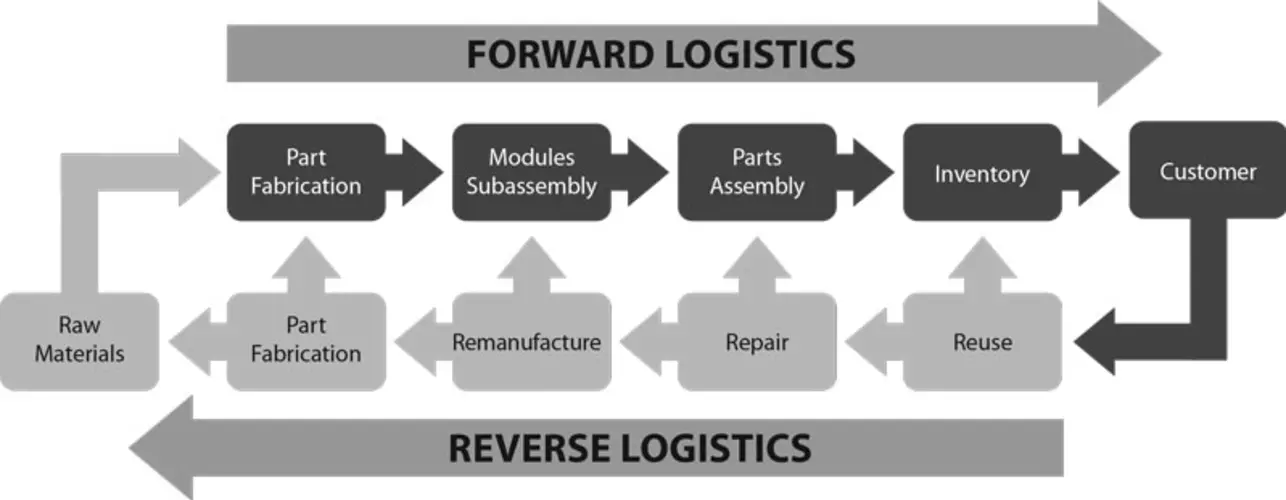In today’s fast-paced business environment, logistics companies need to manage their operations with speed, efficiency, and accuracy. A professional ERP logistics company can be a game-changer for businesses to streamline their processes and gain real-time insights into their operations. However, choosing the right ERP system for your logistics company can be a daunting task, as the market is flooded with options. In this blog, we will provide you with a comprehensive guide on how to choose the right ERP system for your logistics operations.
- Scalability
The ERP market is predicted to reach $117.09 billion by the year 2030. Scalability is an important factor to consider when choosing an ERP system for logistics operations. As companies grow, their logistics operations tend to become more complex, and they need an ERP system that can accommodate their increasing needs. The ERP system should be able to support the company’s expansion and growth and should be able to handle a larger volume of transactions and data.
- Integration with other systems
An ERP system for logistics operations should be able to integrate seamlessly with other systems and applications that the company uses. This includes systems such as Customer Relationship Management (CRM), transportation management systems (TMS), and warehouse management systems (WMS). Integration helps to eliminate data silos and improve the overall flow of information, leading to more efficient operations.
- User-friendly interface
The ERP system should have a user-friendly interface that’s easy to use and navigate. The system should be intuitive, allowing users to easily access the information they need without having to go through a complicated process. A user-friendly interface can help to improve the adoption rate of the ERP system, which in turn can lead to more efficient operations.
- Customizability
An ERP system that is easily customizable allows companies to adapt the system to meet their specific needs and requirements. This includes the ability to modify processes, workflows, and even the user interface to match the way the company operates. Customization can also include adding new functionalities or integrating with other systems and applications to support specific business requirements.
For example, a logistics company might have unique requirements for tracking and managing shipments, such as handling special regulations and requirements for certain types of goods. A customizable ERP system would allow the company to configure the system to handle these unique requirements, ensuring that all operations run smoothly and efficiently.
- Reporting and Analytics
The ERP system should have robust reporting and analytics capabilities, allowing companies to access important data and insights in real time. This information can help companies make informed decisions and improve their overall operations. The reporting and analytics capabilities of the ERP system should be customizable, allowing companies to create reports that are relevant to their specific needs.
- Cost
Companies should choose an ERP system that fits within their financial constraints and should consider not just the upfront costs but also the ongoing costs of maintaining and updating the system. Upfront costs of an ERP system can include the cost of the software, hardware, implementation, and training. It’s important to consider these costs and ensure that the ERP system is within the budget of the company.
Ongoing costs of an ERP system include maintenance and support fees, upgrades, and any additional customizations that may be required as the company’s operations change. These costs can add up over time and can impact the bottom line if not carefully considered. Apart from these two, there are several hidden costs that should not be overlooked.
- Security
The security of an ERP system is a critical concern for companies. The system should have robust security measures in place to protect sensitive information and data from cyber threats and unauthorized access. Companies should choose an ERP system that has a proven track record of security, and should also consider investing in additional security measures to protect their information.
- Support and Maintenance
The ERP system should have a strong support system in place, offering round-the-clock support to users if needed. Companies should choose an ERP system that provides regular software updates, bug fixes, and technical support. The maintenance and support services offered by the vendor should be reliable, responsive, and cost-effective.
- Mobile Accessibility
In today’s fast-paced business world, it’s essential for companies to have access to their ERP systems from anywhere, at any time. An ERP system for logistics operations should be mobile-friendly, allowing users to access information and perform tasks on the go. This can improve the efficiency of operations, especially for companies that have employees working in the field.
- Vendor Reputation
Finally, companies should consider the reputation of the vendor when choosing an ERP system for their logistics operations. The vendor should have a proven track record of delivering high-quality ERP systems and should have a strong customer base. Companies should also consider the level of customer support and service provided by the vendor, and choose one that has a reputation for providing responsive and helpful support.
Conclusion
The key to a successful ERP implementation is to involve all stakeholders, including employees, managers, and IT staff, and to ensure that the system aligns with your business goals and strategy. So, start your search for the right ERP system today and take your logistics operations to the next level!



